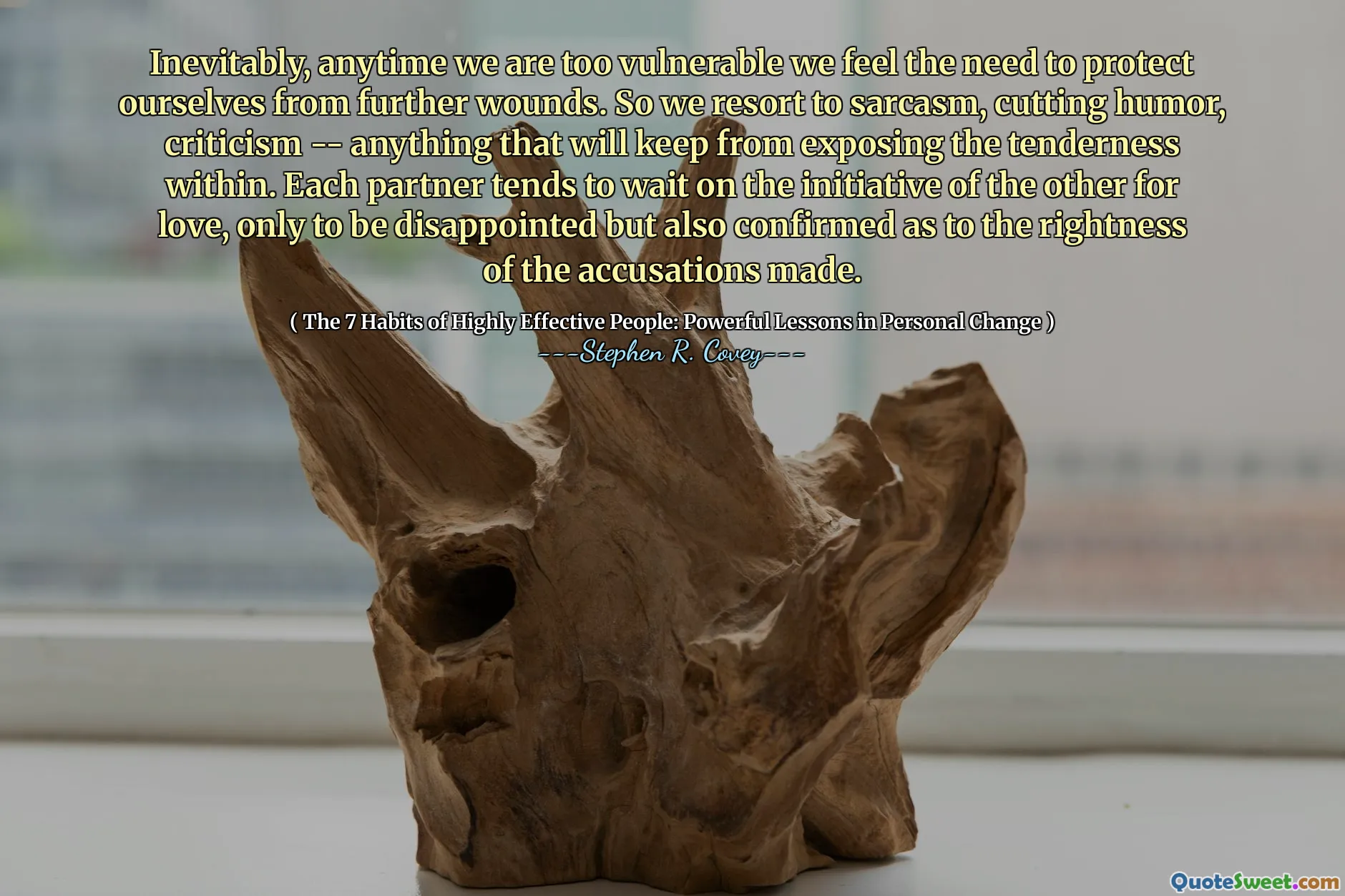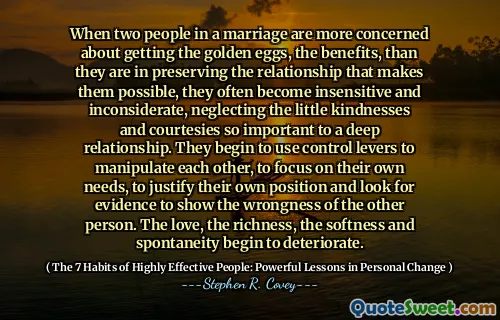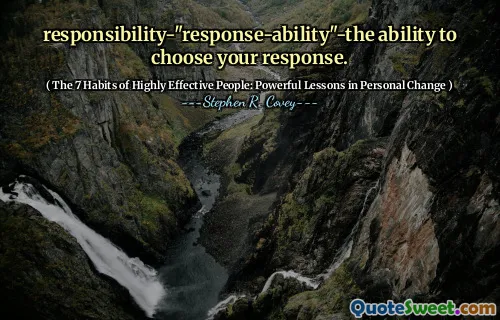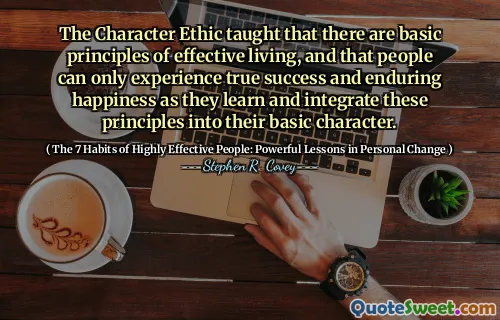
Inevitably, anytime we are too vulnerable we feel the need to protect ourselves from further wounds. So we resort to sarcasm, cutting humor, criticism -- anything that will keep from exposing the tenderness within. Each partner tends to wait on the initiative of the other for love, only to be disappointed but also confirmed as to the rightness of the accusations made.
This quote delves into the deeply human instinct to safeguard our inner vulnerabilities. When we open ourselves to another, there's an inherent risk of emotional pain, rejection, or disappointment. The natural response, therefore, is to develop defenses—sometimes unconsciously—like sarcasm, humor at the expense of others, or harsh criticism. These defenses serve as shields, shielding us from the potential hurt that honest vulnerability might bring. However, while they may offer temporary relief or a sense of control, they often cast a shadow over authentic intimacy.
In relationships, this dynamic can lead to a frustrating cycle. Partners may wait for the other to initiate love or affection, expecting that vulnerability will be reciprocated. Yet, because both are guarded, misunderstandings and accusations flourish, sometimes unjustified. The disappointment becomes a confirmation of their fears—that vulnerability indeed leads to hurt—and inadvertently, this reinforces the very barriers that prevent true connection.
This insight illuminates the importance of cultivating courage in emotional openness. Building a foundation of trust can allow partners to soften defenses, communicate honestly, and create a space where tenderness and vulnerability are welcomed rather than feared. Recognizing this pattern is the first step toward breaking the cycle; it emphasizes that authentic intimacy requires vulnerability, and that the risk is worth the potential for genuine connection. The journey toward emotional honesty can be challenging but ultimately rewarding, transforming defense mechanisms into bridges toward mutual understanding and love.









